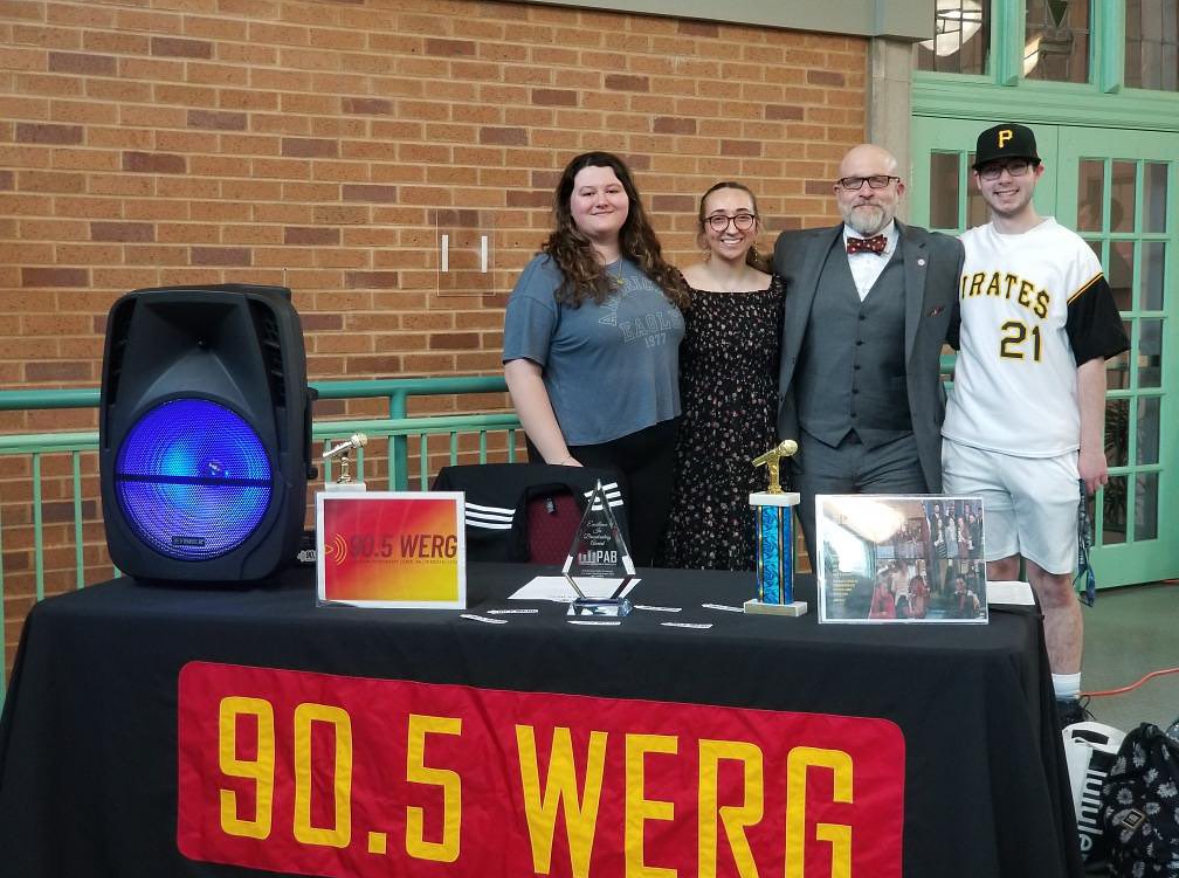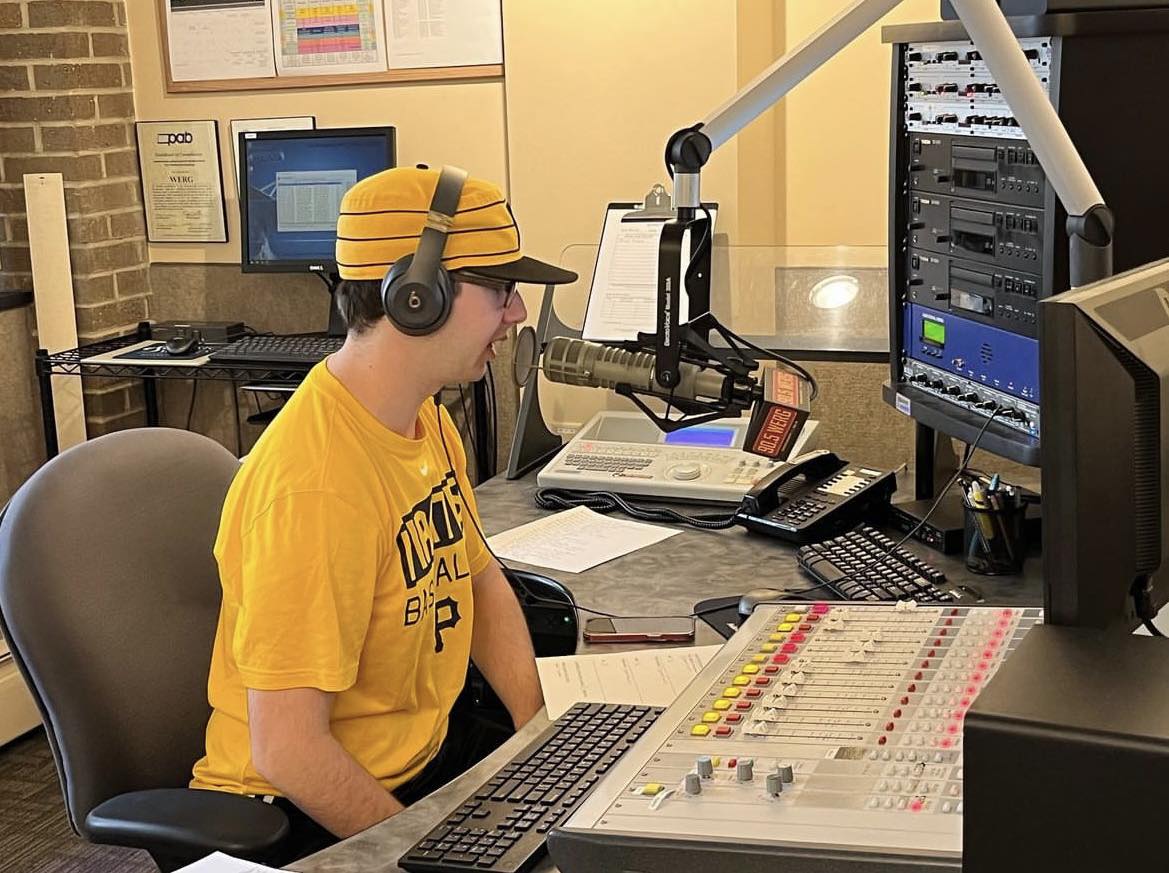Gannon University provides a fisheries class to all who don’t mind getting their hands— and clothes— a little dirty in the process of their studies.
If anyone’s seen the show “Dirty Jobs” you’d know that the host, Mike Rowe, takes on many jobs that incorporate the word “dirty.”
From cleaning up a crime scene to cleaning up road kill, Rowe has covered a variety of unusual jobs all over the country.
Gannon puts an academic spin on the show “Dirty Jobs” in its offering of a biology fisheries class, taught by Edward Phillips, Ph. D.
The fisheries class goes on many excursions collecting a variety of fish from Erie’s streams. Every Wednesday for the first half of the semester, the class goes out to do its collecting and, according to Phillips, there’s no promise that the students will leave clean.
“There is always at least one person every semester who falls in while we are sampling streams,” Phillips said.
One student has already taken a spill this semester.
Senior biology major Sarah Glancy relived the experience of toppling into Twenty Mile Creek during one of the class’s excursions.
Glancy, who is over 6 feet tall, said that she was completely submerged after she lost her footing.
“There was a waterfall that had eroded the rock bed into a deeper hole than the rest of the creek bed,” she said. “That, plus the tractionless waders I was wearing, which were two sizes too big, made me slip and fall.”
Glancy said she was not derided by her professor and peers, but the incident did not provide cause to return to campus.
“We were still out for an hour after I fell in,” she said.
Glancy also said she has had to accept certain odorous truths about her favorite class, though she doesn’t mind.
“I come home smelling like fish every Wednesday night,” she said.
With the hands-on experience the students receive from the fisheries class come several benefits.
“I think all learning is better when you physically do it rather than just hear about it,” Phillips said.
Glancy agreed, citing the hands-on experience as one of the main reasons she decided to enroll in the class.
“It looks really good on a resume because it’s experience that not a lot of people get,” she said.
According to Glancy, it is a fortunate opportunity because of the rarity of the program, both in regards to when and where it can be offered.
“The class is only offered every other year, and they have to keep the numbers down,” she said.
She added that the necessity for a small class size is dictated by the limited amount of equipment and tasks available for students to work on.
“It’s only so big a job,” she said. “Having too many people would just make it a bunch of people standing around not doing anything. He [Phillips] wants us to actually get the hands-on experience.”
When it comes to location, Glancy added that Gannon students are lucky to be close to so many bodies of water.
“It’s a class that you can really only get in undergraduate programs that are near major fisheries,” she said.
Philips said his students learn and use many of the techniques that professional fisheries managers are currently using.
Two of these techniques are backpack electroshocking and seining.
Glancy described the difference between the two. Electroshocking involves the process of pulsing a current through the water that causes the fish’s muscles to spasm, making them “easier to net.”
Seining, on the other hand, involves pulling a large net parallel to the shoreline in water shallow enough for students to stand, and taking the net toward shore to catch any fish in between.
“There are a lot of students at Gannon who fish and have no problem with handling fish, but there are others that are the complete opposite,” Phillips said.
“People who have never done it before are often a little jumpy about handling them.”
Glancy said this is something she has become more accustomed to, and the class has actually spurred her interest in pursuing a career in fisheries.
Phillips also said he hopes his class will prepare students for future careers in the field, or will at least teach them to respect an important component in the ecosystem.
“Learning the techniques is important for preparing for grad school or a job working in fisheries management,” he said. “But regardless of where you end up in the future, it is important to gain some appreciation for our aquatic habitats because they are such an important part of our world.”







